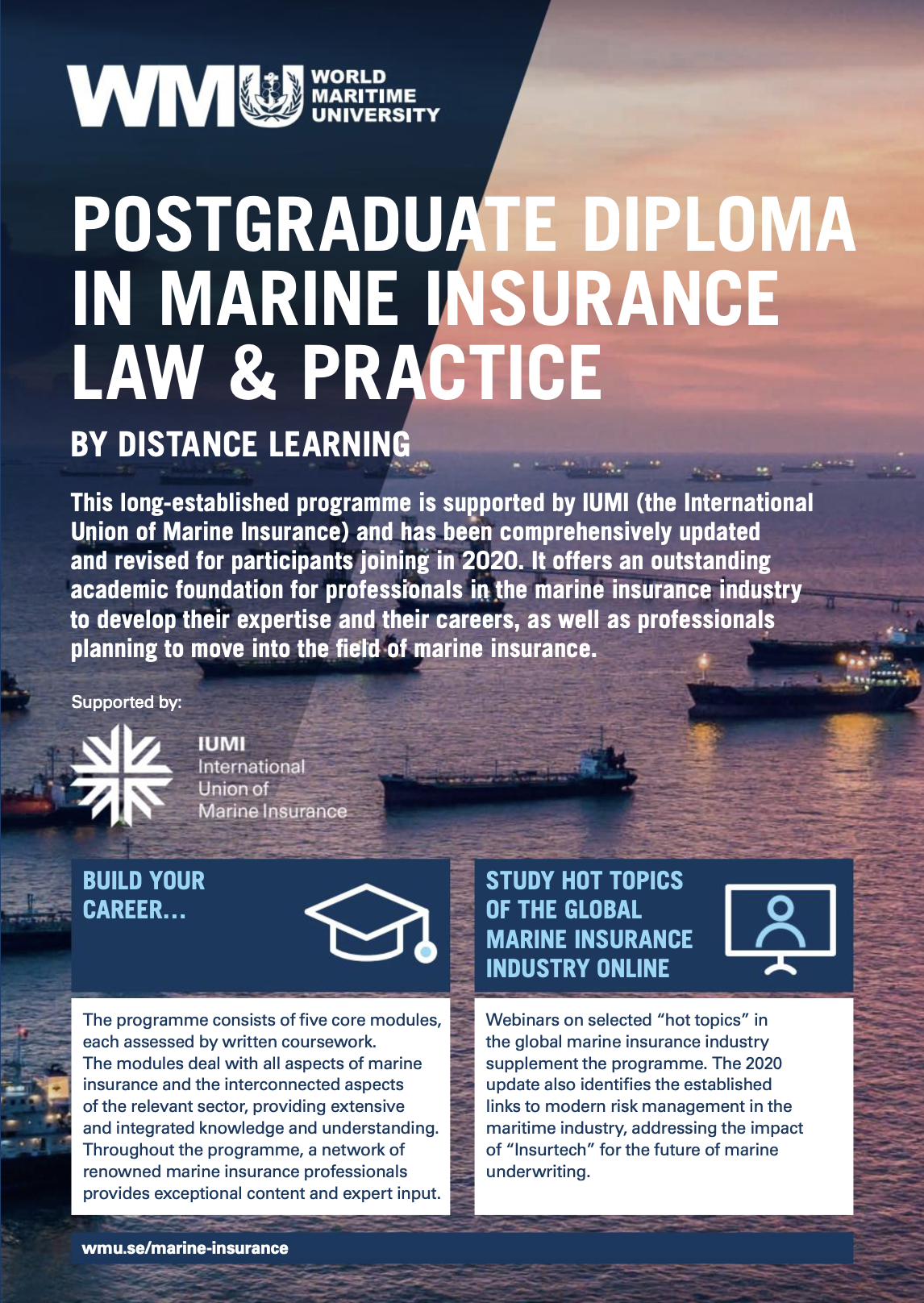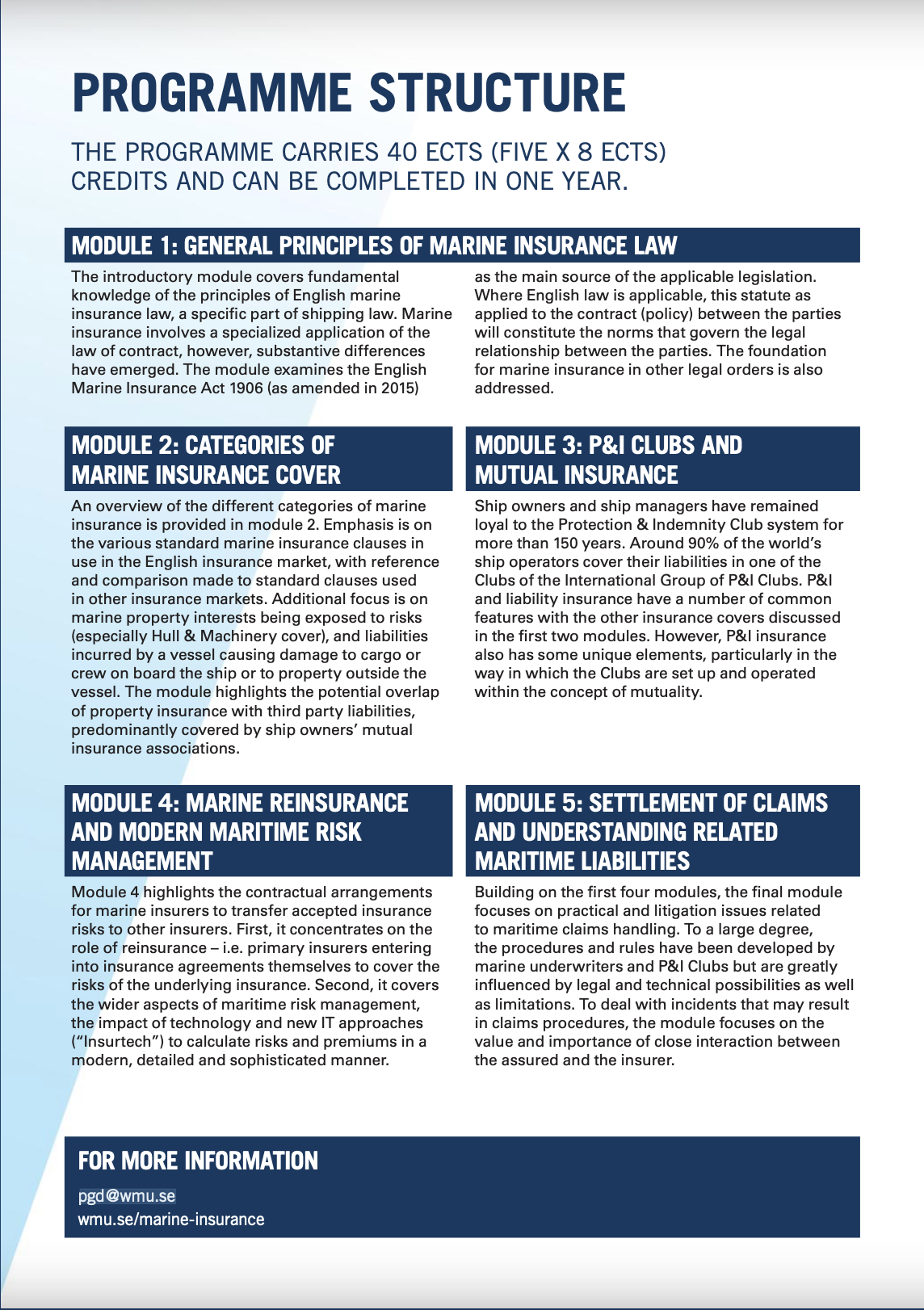Shipping was expecting another cyber virus as the one that struck Maersk or MSC but this time the virus was Biological. Shipping is the most globalized service sector and thus, a key industry for global development. The nature of its activity is subject to perils and disruptions that impact the supply chain of trade. These risks have evolved parallel to shipping and transform with the industry as new regulation, technologies, and perils come to interact with maritime transport. Consequently, stakeholders within shipping have to consider a holistic perspective in order to asses the coverage of these maritime risks.
Shipping as one of the oldest industries in the world has transformed over the years and continues to do so. Particularly, Technologies such as AI, Automation, Big Data, Blockchain will pave the future of shipping services, plus, Environmental measures such as regulation (IMO 2020), alternative fuels, scrubbers, among others are initiatives will make shipping more sustainable but will imply other risks to stakeholders. An industry as capital intensive as shipping has to efficiently cover its risks in order not to collapse.
The holistic component is fundamental to understand the never-ending transformation of the industry and the threats surrounding it. The dynamics of shipping make it compulsory that information and knowledge are updated frequently to provide the best understanding to cover and minimize exposure to value destruction. Marine Insurance, was the earliest well-developed kind of insurance and it is meant to understand the dynamics of shipping and to mitigate or transfer the risks and probability of losing the value of the cargo, services, and capital intensive investments in maritime transport.
MARINE INSURANCE LAW & PRACTICE POSTGRADUATE DIPLOMA (PGDIP)
In that sense, this long-established program has been comprehensively updated and revised for students joining in 2020, to offer an outstanding academic foundation for professionals in the marine insurance industry. Practitioners are empowered to develop their expertise and their careers, and those professionals planning to move into the field of marine insurance are offered a thorough understanding of this sector of the maritime industry. Marine underwriters and overall maritime professionals have the opportunity to fully learn and practice Marine Insurance from the pinnacle of World Maritime Education, The World Maritime University, with its Distance Learning Post Graduate Diploma (PGDIP) in Marine Insurance.
Program Details
The program carries 40 European credits and can be completed over a single year. It is comprised of five modules.
Entrance Requirements
The Admissions Board will consider only those applicants who meet the following general entrance requirements:
- A minimum of five years’ work experience
- A Bachelor’s degree in a relevant discipline (with full transcript)
and/or
The highest grade certificate of competency for unrestricted service as master mariner or chief engineer - English language ability (both written and spoken, see below English Requirement)
English Language Requirements
All applicants must submit an internationally recognized English language proficiency test. Acceptable tests include IELTS, TOEFL, Cambridge examinations, and GCE O-levels in English language. Other tests are accepted by the Admissions Board only under exceptional circumstances; applicants should check with the Registry in such cases.
Candidates are assessed in accordance with the following general guidelines:
Test of English as a Foreign Language (TOEFL)
IBT: 80+
PBT: 550+
WMU’s TOEFL institution code is 9198.
International English Language Testing System (IELTS)
band 6.0 or above
Please note: the academic, not the general training, version of the test is required
Cambridge Examinations
Proficiency (CPE)
Students who have a pass in a GCE O-level or the equivalent (WAEC, CXC etc) must enclose a copy of their examination results for evaluation by the Admissions Board.
Sometimes applicants’ test results meet the University’s general guidelines, but show weaknesses in a certain skills area. In such cases, the Admissions Board will evaluate the skill level based on guidelines shown above. Information on TOEFL may be obtained through US embassies/consulates or the US Information Service, and on the IELTS and Cambridge Examinations from the British Council or Australian or UK embassies/consulates.
More information can be found by visiting these websites:
https://www.ets.org/toefl
https://www.ielts.org
https://www.cambridgeenglish.org
Fees and Costs
| Time frame | 11 months (can be completed over a single year, or spread over three years, to allow students maximum flexibility to fit their studies around their demanding careers) |
| Credits | 40 EC |
| Fees | US$ 8,750 (US$ 9,750 when paid in installments) |
The fees must be paid by bank transfer as follows:
| Account Name: | The World Maritime University |
| Account Number: | 3968-77-02567 |
| IBAN Number: | SE66 3000 0000 0396 8770 2567 |
| BIC Code: | NDEASESS |
| Bank Name: | Nordea |
| Bank Address: | PO Box 24, S20124 Malmö, Sweden |
Details of transfer of funds should be sent to: pgdadmissions@wmu.se Alternative payment options could be arranged upon request
Link and Contact
If you have any queries, please send them to pgd@wmu.se



